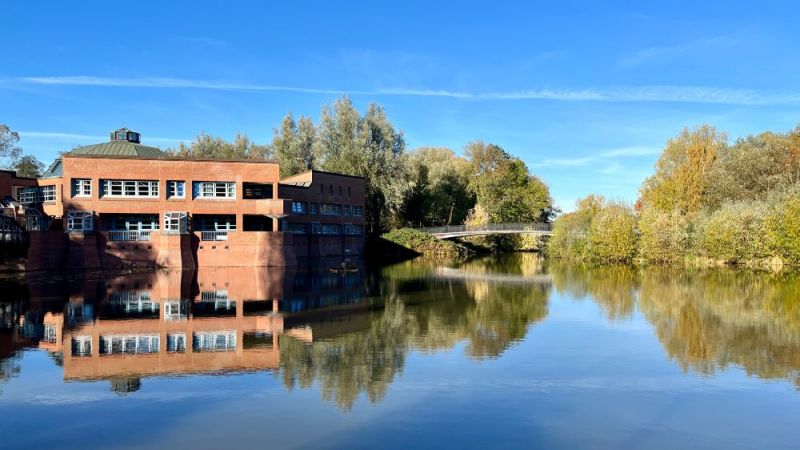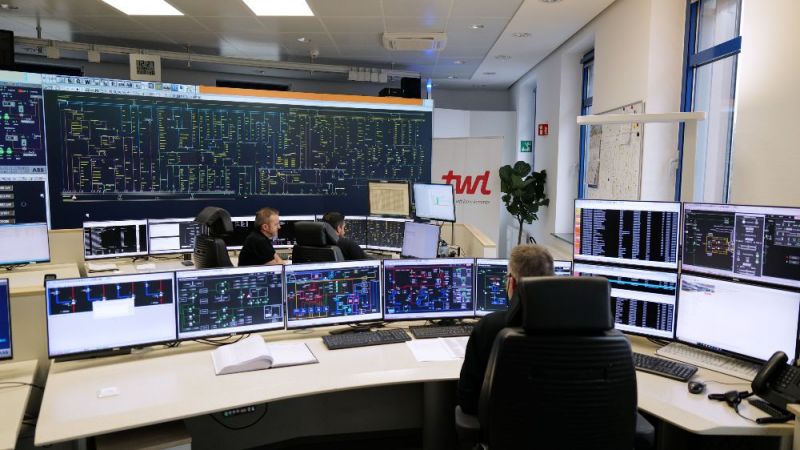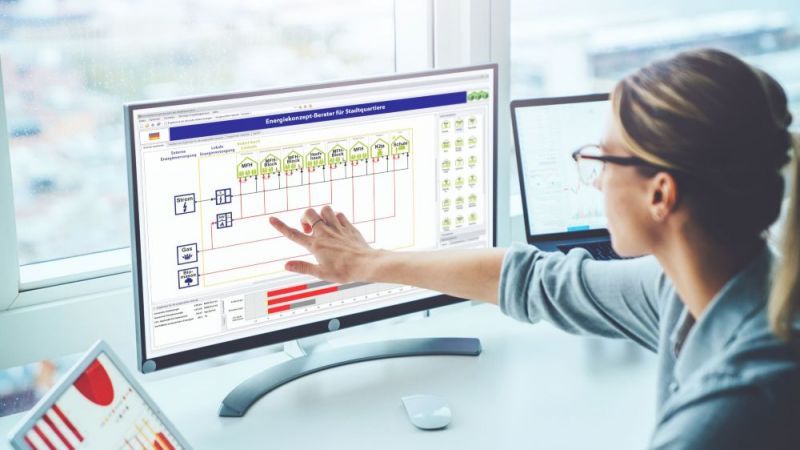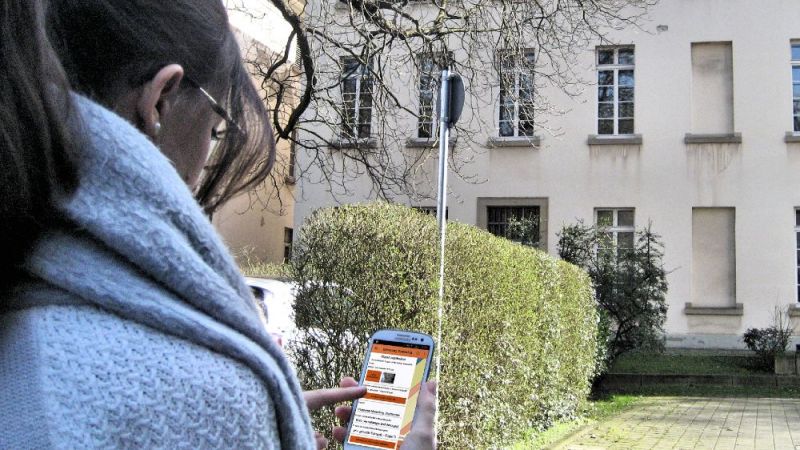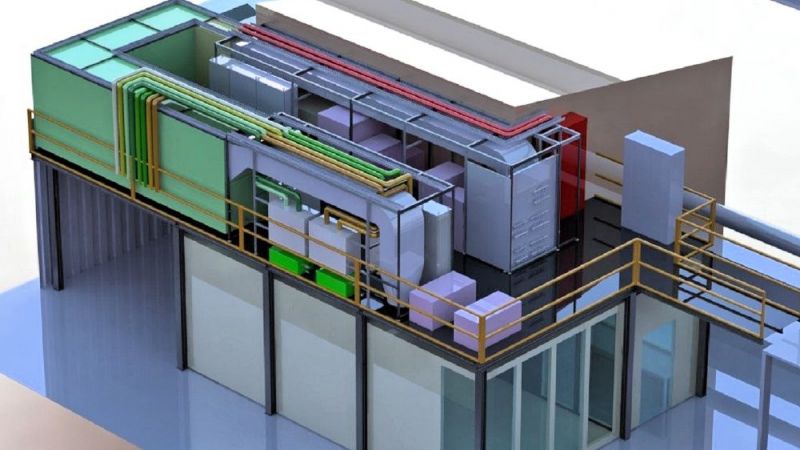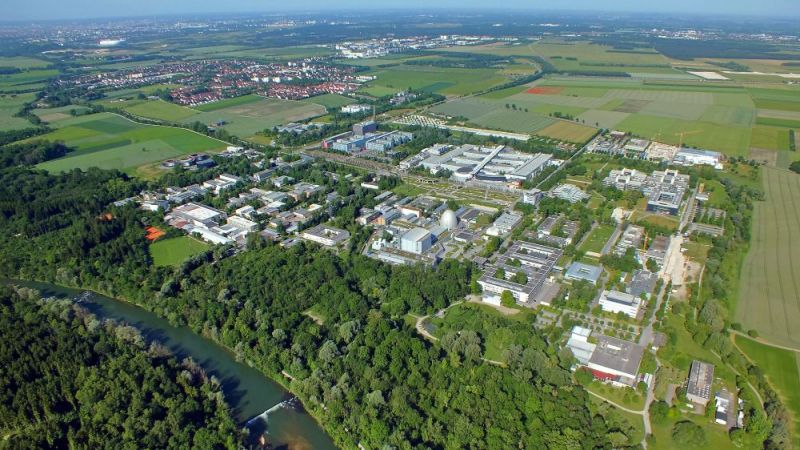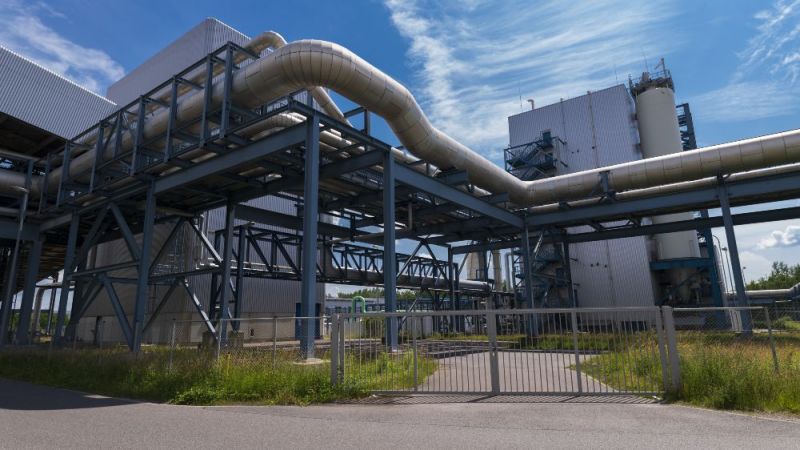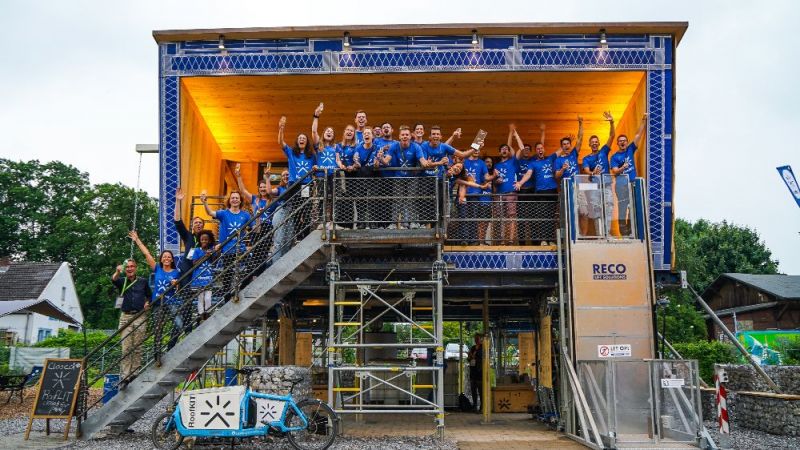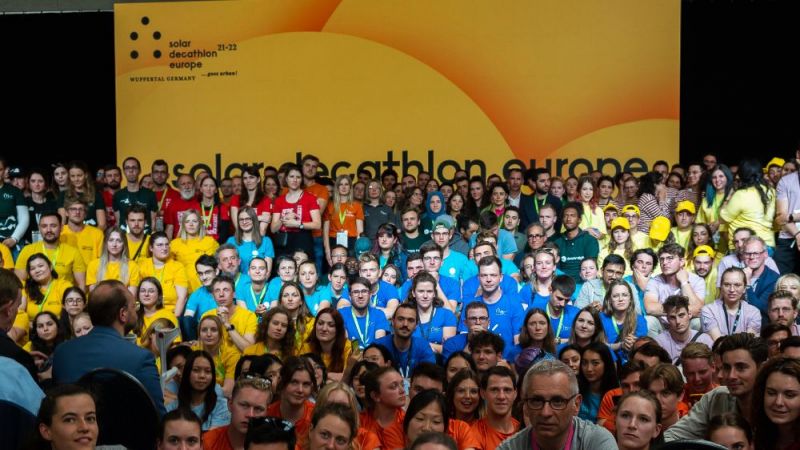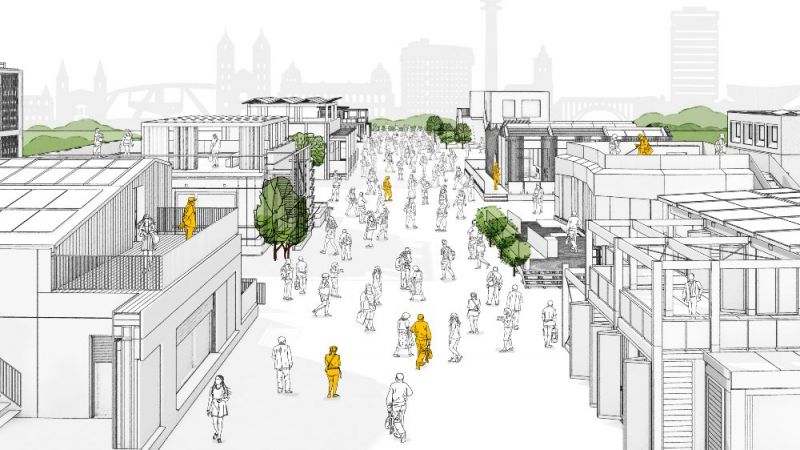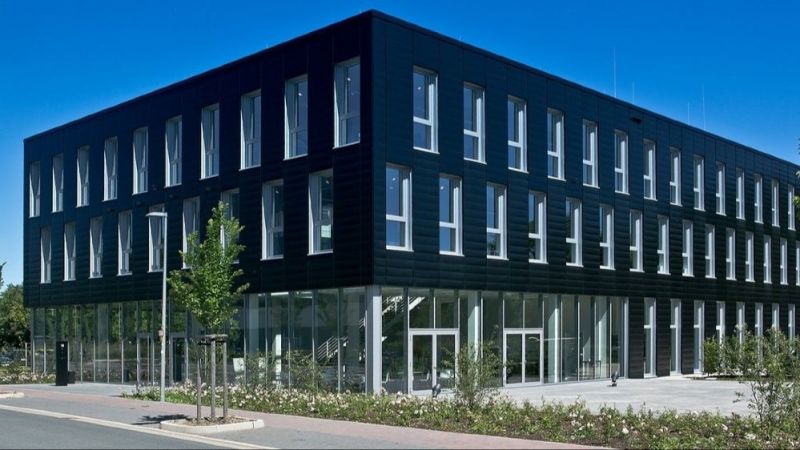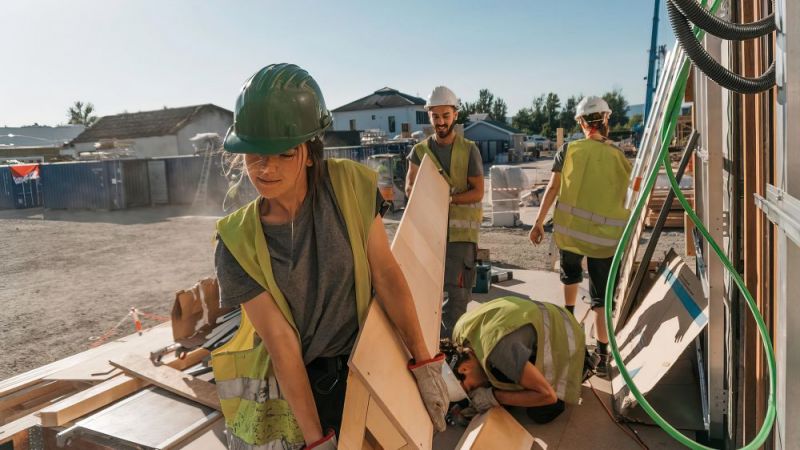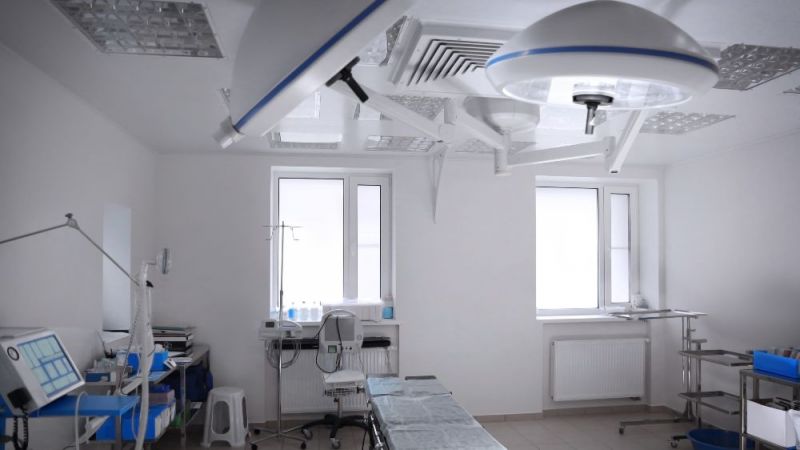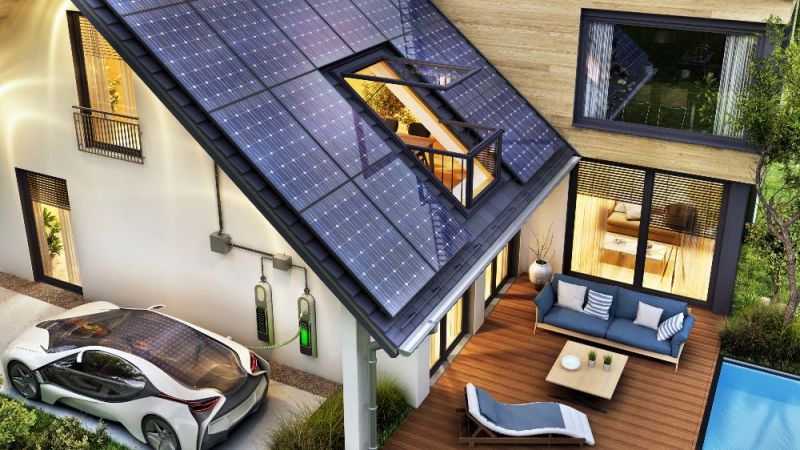
Interaction of buildings with electricity and heat grids
Grid-friendly operational management strategies for non-residential buildings
This research project is aimed at developing and testing innovative strategies for the energy-efficient operational management of non-residential buildings. This is intended to make the supply of heating and cooling energy to buildings in the commercial, trade and service sectors energy-efficient and grid-supportive. The test is being carried out in the laboratory based on hardware-in-the-loop experiments, whereby the operational management concepts will then be tested in several real buildings.
In the future, buildings will interact much more closely with power grids and heating networks. This is why heating and cooling supplies, and building operation, must be designed in a grid-friendly manner. This requirement arises from the current changes occurring in the German energy system: The increasing share of fluctuating renewable energy sources, mostly wind and solar power, leads to heavy temporal fluctuations in electricity production. As a result of the transition towards an increasingly decentralised supply, local or regional differences between electricity generation and demand are emerging that place greater demands on grid stability, and on efficient and reliable electricity provision.
A promising approach to offset differences between electricity supply and demand lies in demand-side management, i.e. the targeted activation or deactivation of electrical consumers in order to be able to influence power requirement. Electrically driven heat pumps, chillers and fans make for a diverse combination of thermal and electrical energy demands in buildings.
The starting point for this project was the forerunner project “Grid-responsive buildings” with which basic methods and various simulation models for the grid-friendly operation of buildings and systems for heating and cooling supply were developed: load shifting algorithms and a solution to couple different software tools. The latter makes it possible to couple detailed building simulations with control concepts that were implemented in other software environments. This way, the first steps towards the operation of a grid-friendly building were developed and load shifting potentials were estimated in the context of increasing shares of renewable energies in the energy supply system.
Research focus
In the research project FlexControl, one research institute, three university institutes and one company are working on novel management strategies for an energy-efficient and at the same time grid-friendly heat and cooling supply for buildings.
A survey of building and plant operators is being conducted as a first step in order to determine the necessary requirements of the system operators for actual operation. The focus is on new and existing buildings in the commercial, retail and services sectors. The purpose of this survey is to clarify the heating and refrigeration technologies used in this real estate sector. Practically relevant supply technologies, thermo-hydraulic topologies, and technical and energy-economical constraints are identified and the grid-friendliness of current buildings is analysed.
The survey is also intended to explore how to motivate operators to run their systems in a grid-friendly manner. User requirements are recorded and various operator and incentive models are evaluated.
Based on these findings, optimal control strategies are to be formulated for grid-friendly building or system operation using simulation models and coupled optimisation algorithms. Optimisation takes into account the operation of buildings and plants (criteria of energy consumption, costs, comfort) as well as the building with its services equipment as they interact with the grid, i.e. including a quantity of the energy supply system. More realistic, simpler rules are derived from the developed ideal system behaviour by means of operating pattern recognition. These algorithms are first evaluated in test stands according to the hardware-in-the-loop principle, and are then tested in real operation in at least three buildings to determine their practicability and robustness.
.27.10.2021
Fraunhofer-Institut für Solare Energiesysteme ISE
http://www.ise.fraunhofer.de
info@ise.fraunhofer.de
Tel.: +49(0)761-4588-0
TU Dresden, Professur für Gebäudeenergietechnik und Wärmeversorgung
https://tu-dresden.de/ing/maschinenwesen/iet/gewv
ensys@mailbox.tu-dresden
+49(0)351-463-32145
Hochschule Ruhr West, Institut Energiesysteme und Energiewirtschaft
http://www.hochschule-ruhr-west.de
info@hs-ruhrwest.de
+49(0)208-88254-837
Robert Bosch GmbH, Energy Management
http://www.bosch.de
kontakt@bosch.de
Tel.: +49(0)711-811-34586




